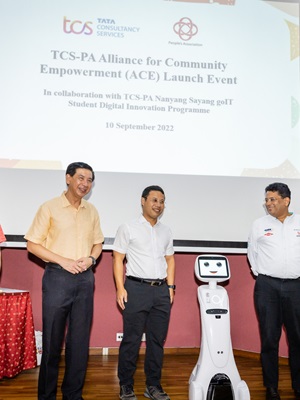It is often touted that Singapore prides herself in her meritocratic ideals, and one of the great hallmarks of that lies in the Public Service Commission (PSC). The allure of prestige and power that it confers unto its recipients is second to none in a country where meritocracy is extolled as gospel. It promises a level playing field, where those who abide by its rules will rightly receive the fruits of their labour. This promise, sadly, only seeks to shroud reality behind a veil of ignorance.
It is a well known fact that recipients of a PSC scholarship are showered with benefits, ranging from fully sponsored university journeys to guaranteed employment in the public service. Those who achieve this are expected to be the cream of the crop - the best and brightest of their generation. Upon receipt of such a scholarship, they are given a blessing and a responsibility - as they are groomed to become the next batch of policymakers and even politicians to lead our country. The coveted nature of this scholarship understandably results in swathes of applicants yearly.
However, being a PSC scholar is no easy feat, and the stringent qualifying criterias aptly reflects that. One cannot stand out with exceptional grades alone, they must point to exceptional Co-curricular Activities (CCA) achievements, and would need to impress during the interview process. Both of these additional criterias individually tip the scales in favour of those who are from elite schools.
The culture of elite schools is one where they pride themselves not only in terms of their academic achievements, but non academic ones as well. Whether this comes from student representation in Olympiad events, performing arts or sports - these schools spare no expense to nurture their students. This would look like investing huge amounts of money into infrastructure such as quality school fields for training, or in recruiting the best coaches in the arena to coach their students. These mean that students from elite schools benefit from a vast array of resources and training to catapult their development in their respective niches. It is no surprise that such quality training helps them to become the best in their field.
Comparatively, neighbourhood schools simply do not have the resources to sustain such in-depth training and development of their students. Their priority lies in providing a quality education for their students, rather than focussing on CCAs. Their students, who may be undoubtedly talented, will never have the chance to achieve glory for their school because of the dearth of resources and training allocated to them.
This becomes an issue when students from both types of schools are judged on what is assumed to be an equal platform - the inter school national games. It is near impossible for neighbourhood schools to break this glass ceiling and compete with the elite schools. This is represented by the dominance of elite schools in most competitive sports and performing arts year-on-year.
Unfortunately, this becomes especially problematic when scholarship applications, like that of PSC, focus on the attainment of such achievements as embellishments to grades. On paper, it is easy to understand why the PSC would prefer a straight A student with competitive victories in the Rugby A Division, and an SYF Gold in Chinese orchestra - as compared to someone who merely has straight As. However, this unfairly punishes the latter for something that is simply out of his control - the ever widening chasm between elite and neighbourhood schools.
Moreover, this chasm further widens in another integral element of the PSC selection process - the interview. Most students at such an age are not blessed with quality interview skills, having never been in a position where they would have had to sell themselves to a board of elites. Elite schools recognise this gap, and many take deliberate steps to equip their students with these skills even before leaving Junior College. For example, they may set up Higher Education and Career Guidance programmes to prepare students for the daunting process of going for an interview. They have their doors open to any student who may need coaching for an important interview - such as that of PSC - and readily help to develop them into powerful orators.
Additionally, elite schools also prepare their students rigorously for such interviews via their enhanced curriculum. For instance, elite school students would probably be exposed to a plethora of global issues in class discussions or even seminars given by policy makers, ranging from financial market analysis to pertinent societal issues that Singapore confronts. This ensures that elite school students are able to comprehensively answer questions asked by an interview panel, giving answers that are well-articulated, coherent and nuanced. By contrast, neighbourhood schools lack the resources to do this, causing students to be unable to engage in such valuable discussions. This impairs them from forming original and well thought out answers regarding global affairs. Hence, should the PSC interview revolve around global affairs such as the ongoing Israel-Palestine war, it would be no surprise which student the PSC panel would be more enamoured by.
It is an uphill battle for a student to make up this gap if he was not born into such privilege. The lack of attention to it in their upbringing, and the lack of resources dedicated to it in neighbourhood schools results in many students being left in the dark on how to approach an important interview. Thus, even in the rare instance where a student may have sufficient CCA achievements and makes it to the interview stage, they will be spurned due to their comparatively poor interview skills. Yet again, the ladder to reach this prestigious realm of public service remains just out of reach for all but those who herald from elite schools.
Whilst the situation is generally bleak, it would be remiss to ignore the steps that have been taken to address these concerns. The PSC board has rightfully begun to diversify their selection process by choosing individuals from polytechnics and the Institute of Technical Education, as well as neighbourhood schools. However, these remain the exception rather than the norm - as the vast majority of successful applicants continue to hail from the traditionally elite schools. The very fact that such students are still valorised as “success stories” who have “broken the mould” suggests that the dominant narrative is still one that expects PSC scholars to come from elite schools.
This represents a problem for Singapore for two reasons. Firstly, when the narrative is that the playing field is level for all students, those who fail to accomplish what their peers in elite schools achieve will be demoralised. They will believe that if the system is not flawed, it must be they who are flawed and are not good enough. They blame themselves for their failings, and see those who do become scholars as plainly superior to them - creating strong self-limiting beliefs within them. This could not be further from the truth - but the sanctimonious attitude governing our meritocracy policies has resulted in such debilitating effects. Such a problem becomes particularly worrying given that it is exactly this group of individuals who need PSC scholarships the most. They usually do not have the money to fund local university education and going overseas is but an unrealistic dream for many. The very group of people who the scholarship seeks to provide for are being rejected for reasons out of their control, and are simply told that they weren’t good enough.
Secondly, it strips the public service of the quality of scholars that they need. Accusations have been thrown at policymakers for being overly technocratic and academic, and for failing to understand the nuanced issues on the ground. This is in part because the demographic of policymakers and scholars are those who come from wealthier backgrounds - both personally and academically. By unintentionally impeding the admission of students from humble backgrounds, it denies the public service the chance to account for varied viewpoints and perspectives. This has severely undermined policymaking and has instigated accusations of policies being tone-deaf. Sadly, the continued rejection of those from other backgrounds today suggests that the silencing of such critiques is not on our immediate horizon.
The hallmark of meritocracy should not be the PSC, Edusave awards or any other scholarship. Its fundamental tenets should be fairness, equity and hope. Granted, meritocracy is theoretically an excellent concept but practically hard to achieve. One does not begrudge Singapore for failing to achieve meritocracy in its purest sense. However, what is inexcusable is creating a myth of true meritocracy, and condemning those who fail to achieve it as “not good enough”. It is exactly this mentality that fuels a sense of superiority in some, and inferiority in others - unequivocally engendering elitism in Singapore.
Posted 21/03/2024
















